AdTech produces non-stick foam CFF filter to improve the quality of aluminum and aluminum alloy castings.
The use of aluminum alloy castings is increasing, and the requirements for castings are becoming higher and higher. In addition to ensuring chemical composition, mechanical properties and dimensional accuracy, aluminum alloy castings are not allowed to have casting defects such as shrinkage holes, shrinkage holes, air holes, and slag holes.
Liquid aluminum purification is one of the measures to ensure the quality of aluminum alloy products, and it is also the main means to improve the overall quality of aluminum alloys.
The refining effect of aluminum liquid has an important influence on the formation of pores, shrinkage holes and inclusions in aluminum alloy castings, and directly affects the physical and mechanical properties of aluminum alloy castings.
Without high-quality aluminum liquid, even if the subsequent treatment is deepened, once defects are generated, they will always exist in the product, making it difficult to obtain high-quality castings.
Therefore, we must pay attention to the gas and inclusions in the aluminum liquid, and take measures to remove the gas and inclusions in the aluminum liquid.
Inclusion compounds refer to anything other than solids and liquids above the liquidus.
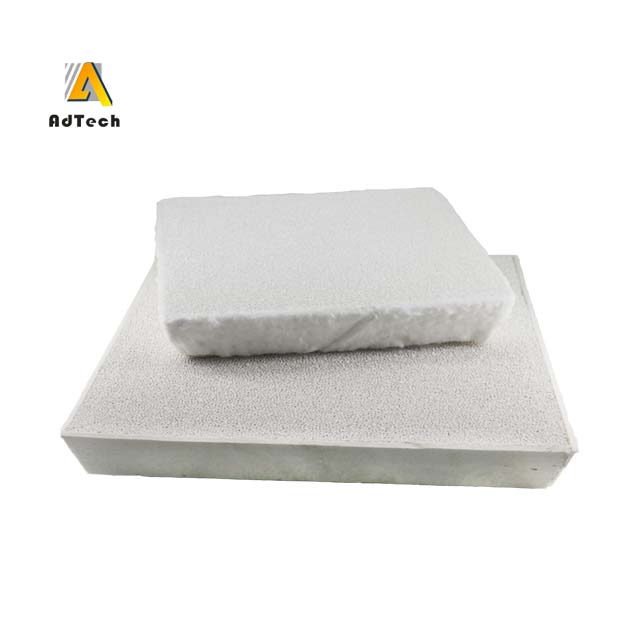
Ceramic Foam Filter Supplier
AdTech produces CFF filter, which has the characteristics of high material strength, high porosity and simple process. In the production of castings, it can effectively prevent slag, inclusions and some gases generated during the casting process.
The filter adsorbs impurity points less than 0.1MM, has high chemical stability, is not affected by the acidity and alkalinity of the molten metal, does not change the chemical composition of the molten metal, can effectively remove non-metallic inclusions in the molten metal, and reduce the turbulence of the molten metal.
Non-stick aluminum foam ceramic filter is the best functional element to eliminate casting defects and obtain ideal castings.
CFF Filter
Common non-metallic impurities in liquid aluminum are oxides, nitrides, carbides, borides, etc., mostly in the form of particles, with a typical particle size between 1 and 30 μm.
In addition to charge, it is mainly the product of chemical reactions in the melting process.
The thickness of the oxide film on the aluminum surface is 2 to 10 μm. When the melting point is approached, the thickness of the oxide film increases to 200 μm. Not only does the oxide film on the liquid surface thicken, but the structure also changes.
The aluminum liquid is dense on the side and has a protective effect on the aluminum liquid. The aluminum liquid is loose on the outside and has small holes with a diameter of 5 to 10 μm inside, which are filled with hydrogen, air and water vapor. If the liquid film is stirred into the aluminum liquid, it will increase the complexity and gas content.
In addition, some undesirable primary intermetallic compounds will appear in high alloy melts, such as aluminum zirconium, aluminum titanium, etc., and iron-containing aluminum alloys will also form iron-rich aluminum-iron-iron phases, aluminum aluminosilicate silicates, and aluminum-silicon-iron phases It is a needle-like compound that severely damages the aluminum matrix and affects mechanical properties.

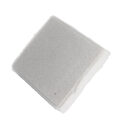
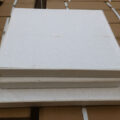
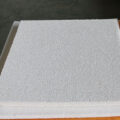
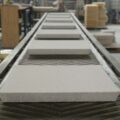
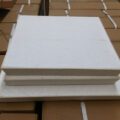
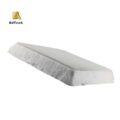
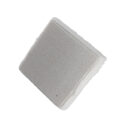
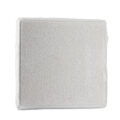
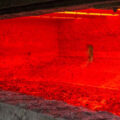
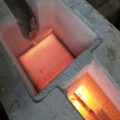
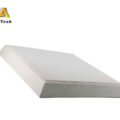
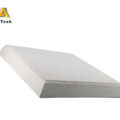
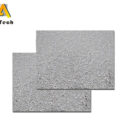
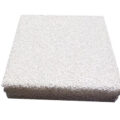






[…] best way to remove inclusions and double membranes. AdTech’s filter equipment, equipped with CFF filter plates. We provide 20PPI-80PPI ceramic foam filters, the size can be customized according to […]
[…] Pre-heat-treat the launder and related casting tools. Remember to put the CFF filter plate in the pre-heat […]
[…] captured by a filter. Thermal shock properties, obtained from pouring liquid aluminum when the CFF filter was placed in the gating system to ensure that the filters could withstand temperatures of aluminum […]
[…] Ceramic Foam Filter (CFF) can remove inclusions, which are generated between the refining system and the mold table. It is filtering by reducing the level of non-metallic inclusions and oxide films that are present in the molten metal. The ability of the ceramic foam filter to capture these inclusions is critical to maintaining a clean ingot during the solidification of metal. Accordingly, the quality and the productivity in downstream operations such as forging, extruding, and rolling are guaranteed. In general, the methods filtering are used for removing entrained solids from molten aluminum alloys before casting. […]
[…] of particles in the melt, the curved interconnected grids act as support walls, and the ability of CFF Filter to capture heterophasic particles is […]
[…] made of industrial Al2O3 and SiC-based ceramic foam filters (CFF) was studied. The same CFF filter was also tested in a factory-scale filtration experiment. The results of the wetting […]
[…] filtration flow rate of the CFF filter plate is related to the through-hole ratio of the filter plate. For a filter plate of a […]